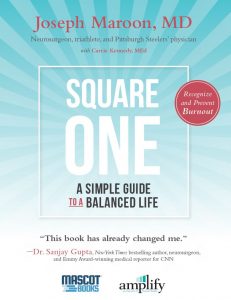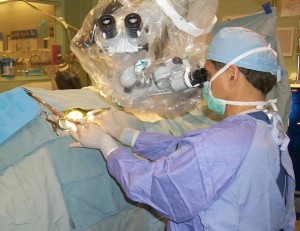How to Improve Brain Health and Memory at any Age
By Joseph C. Maroon, MD, June 11, 2020 Alzheimer’s disease and age-related dementia are associated with progressive impairment of cognitive function frequently severe enough to interfere with an individual’s activities of daily living. With over 50 million Americans age 65 and greater these diseases are regarded as the most significant public health challenges. Presently approximately 6 million Americans are living with Alzheimer’s disease and this projected to increase to 14 million in the next 30 years.
Presently there are no effective drug therapies to prevent or significantly ameliorate ADRD. I am convinced, however, that due to the brain’s neuroplasticity, the ability to change and adapt, that cognitive function CAN be improved and enhanced at almost any age. In the search for modifiable risk factors there are several that hold promise, particularly if started in the 50’s or even 60’s.
These include:
1. Diet
2. Exercise
3. Avoiding environmental toxins
4. Controlling stress
 These are all well documented in my book, Square One-A Simple Guide to a Balanced Life.
These are all well documented in my book, Square One-A Simple Guide to a Balanced Life.
Diet
Scientific evidence supports the Mediterranean diet pattern heavy on flavonoid rich fruits and vegetables and plant based. This has the potential to reduce the risk of cognitive decline and Alzheimer’s disease related dementia (ADRD). The flavonoids most commonly recommended include anthocyanin-rich berries and red wine, flavanone-rich citrus fruits and juices, flavan-3-ol-rich teas particularly green tea and dark chocolate, flavone-rich parsley and celery and flavanol-rich onions and apples and isoflavone-rich soy products. Various clinical studies have indicated positive findings in the areas of memory, executive function and attention.
Exercise
It is now well recognized that exercise is the most effective way to increase BDNF (brain derived neurotrophic factor). This growth factor is like Miracle Gro® of the brain in that it increases the formation of new brain cells, new synaptic connections and enhances neuroplasticity. In addition, myokines, one of several hundred small proteins (cytokines) that are produced and released by muscle cells in response to muscular contraction are both anti-inflammatory and enhance our immune system. These molecules also help to prevent sarcopenia, a common cause of muscle atrophy in aging. Aerobic and resistance exercises also “reset” our neurotransmitters like serotonin, acetylcholine, anandamide, norepinephrine and dopamine which contribute to mood stabilization. Physical aerobic activity is also one of the best anti-depressants when performed regularly and some studies show it is better than anti-depressants drugs for mild to moderate depression.
Environmental Factors
It is well recognized that excessive use of alcohol, smoking, various types of mood-altering drugs, air pollution, contaminated water all can have deleterious effect on brain function. Alcohol in moderation may have some beneficial affect but in excess contributes to ienumerable medical and health issues.
Stress Control
Much is written about the deleterious affect of stress. We know it destroys brain cells when chronic and unmitigated, particularly in the area of the brain controlling memory, the hippocampus. Many popular methods are promoted for stress control including meditation, prayer, yoga, tai chi. In addition, fostering strong relationships is essential with family and friends and provides support and resilience when life’s “storms” strike.
Practice gratitude, show appreciation, forgive transgressions, be compassionate and regularly nurture a positive view and attitude.
Finally, adequate rest and sleep are essential. During sleep autophagy occurs which is the body’s innate process for removing waste products from within cells and encoding and organizing memories.




 Dr. Maroon received an athletic scholarship to Indiana University in Bloomington, Indiana where as an undergraduate, he was named a Scholastic All-American in football. Dr. Maroon has successfully maintained his personal athletic interests through participation in 9 marathons and more than 72 Olympic-distance triathlon events. However, his greatest athletic accomplishment is his participation in 8 Ironman triathlons (Hawaii – 1993, 2003, 2008, 2010, 2013; Canada – 1995; New Zealand – 1997; Germany – 2000), where he usually finishes in the top 10 of his age group. Recently, in July 2012 and 2013, he finished second and third, respectively, in his age group in the Muncie, Indiana half Ironman triathlon. In October 2013 he completed his 5th World Championship Ironman in Kona, Hawaii.
Dr. Maroon received an athletic scholarship to Indiana University in Bloomington, Indiana where as an undergraduate, he was named a Scholastic All-American in football. Dr. Maroon has successfully maintained his personal athletic interests through participation in 9 marathons and more than 72 Olympic-distance triathlon events. However, his greatest athletic accomplishment is his participation in 8 Ironman triathlons (Hawaii – 1993, 2003, 2008, 2010, 2013; Canada – 1995; New Zealand – 1997; Germany – 2000), where he usually finishes in the top 10 of his age group. Recently, in July 2012 and 2013, he finished second and third, respectively, in his age group in the Muncie, Indiana half Ironman triathlon. In October 2013 he completed his 5th World Championship Ironman in Kona, Hawaii.